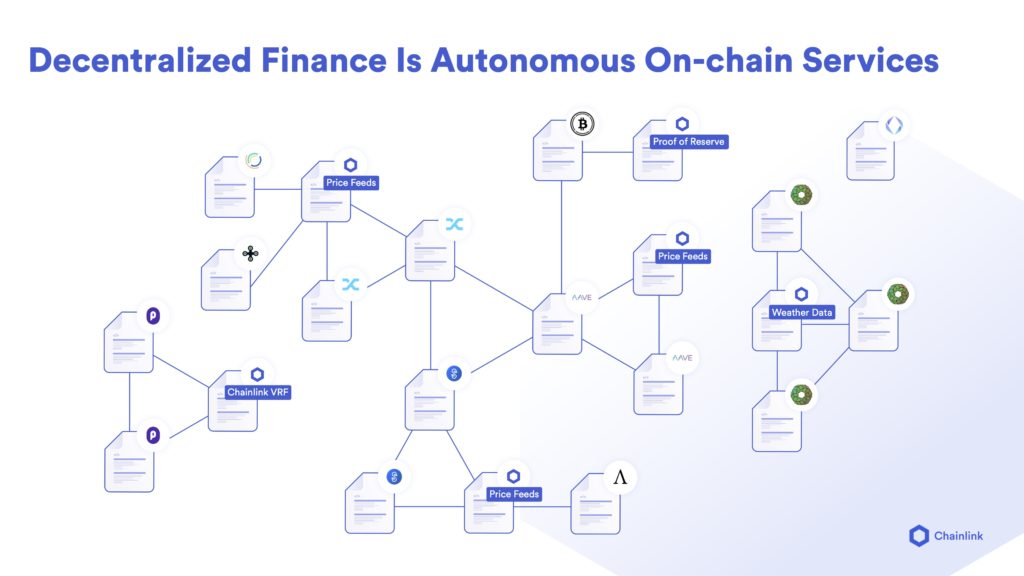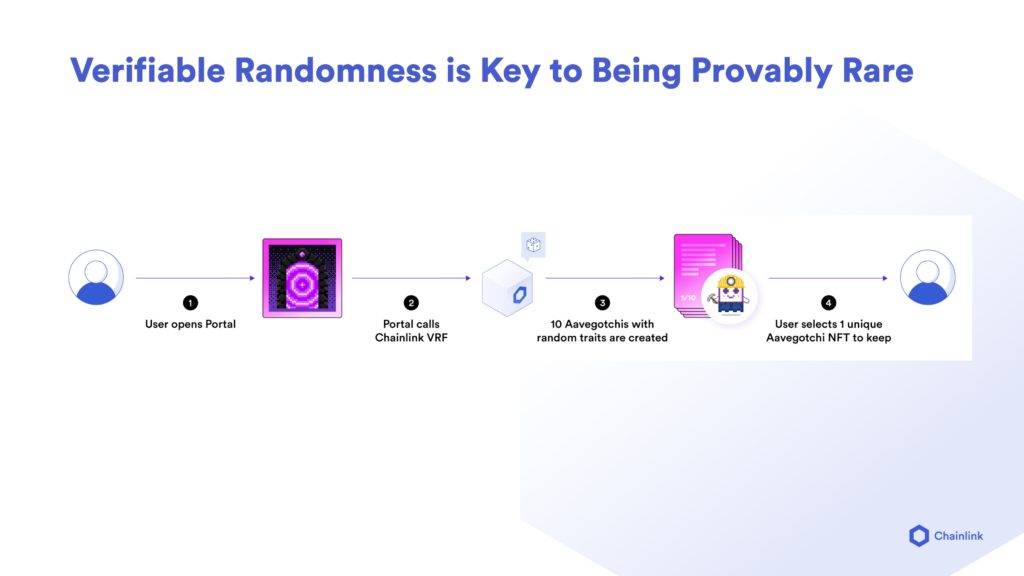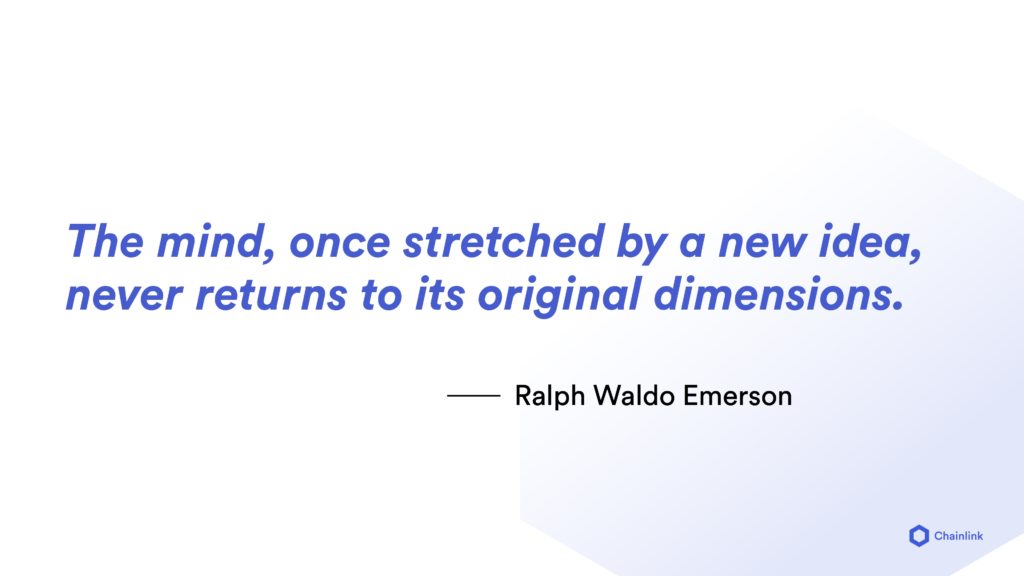Redefining Trust Models With Chainlink’s Decentralized Services
With DeFi continuing to lock in more value and NFTs capturing the public imagination, the global economic system is starting to reach a turning point where everyday people can finally participate in secure digital agreements in industries as wide ranging as finance, insurance, gaming, and art. Smart contracts, digital contracts underpinned by cryptographic guarantees, are proving the superiority of math-based agreements over paper promises and reinventing the trust models that have historically existed between individuals and institutions.
At the opening ceremony of the Spring 2021 Chainlink Virtual Hackathon, Chainlink Co-founder Sergey Nazarov called on developers as the architects of these new models of trust, encouraging them to take scale of this unique moment in the history of blockchain technology and to explore how decentralized oracle networks can augment the capabilities of smart contracts to enable feature-rich, truly usable dApps. The following is an excerpt from Sergey’s presentation, where he focuses on a pivotal idea: by harnessing the Chainlink Network’s suite of off-chain computations, blockchain developers can broadly expand the functionality of smart contracts and build real-world decentralized applications that set new standards for trust, transparency, efficiency, and fairness for users in any region of the world.
The decentralized services that you will now have access to open up an entirely new world of what you can build. That world didn’t exist two years ago—it didn’t even exist a year ago the way it exists now. As Chainlink releases more and more various services, data, and capabilities like on-chain randomness, the more these decentralized services come to life. Developers can combine these services in unique and transformative ways, increasing trust and bringing smart contracts to new corners of the world where they weren’t previously useful.

I think decentralized finance (DeFi) and the rise of non-fungible tokens (NFTs) are excellent examples of this. I believe decentralized insurance is an upcoming example of this, and many other examples are coming. Chainlink provides the infrastructure that developers and engineers need to build smart contracts and redefine trust in most major industries. Once again, when something lacks trust, and people realize that, whether it’s from Robinhood or Wirecard or the McMillions fraud, people naturally begin to look for alternatives.
The big difference between now and any other point in history is that there is an alternative. Before, if a lottery defrauded you, there were no alternatives: you could play another lottery, and it would have the same risk. In the past, if you had somebody who was giving you a financial product and they somehow mistreated you or they did not fulfill your agreement as expected, you had no other choice. You just went down the street to another broker who had the exact same guarantees. But for the first time in history, if somebody fails to provide trust to their users, the users look for an alternative through the Internet, through YouTube, through Wikipedia, through Twitter, and other informational channels. These users increasingly find an alternative in smart contract applications that leverage blockchain oracles like Chainlink. The only thing stopping them from adopting that alternative is that they don’t know about it or that the alternative for their specific situation hasn’t been built yet.

Once again, the big difference between now and every other time in history is that we can build a provably fair lottery that nobody can game. We can make a financial product that doesn’t asymmetrically benefit large hedge funds to the detriment of small asset holders or the larger market. We can create insurance products for developing regions regardless of whether a large insurance company decides to provide insurance to that geography. This is the amazing thing that I think we’re all involved in.
Suppose somebody here builds the next generation of a vertical or a use case or improves DeFi. In that case, they can enhance insurance or improve how NFTs are generated using VRF, marking an important incremental step towards this alternate world that is fair and transparent and doesn’t care where you are, where you’re born, or where you live. All you need is access to the Internet and the willingness to participate in an agreement. I think this will level the playing field across the world, transforming how people participate in markets, what types of risks they can manage, whether they have a savings account, whether the lotteries or the games they participate in are fair, or whether it’s something that’s controlled against them.

This idea is something that I feel is our responsibility to provide to people both as an idea and as a practical, tangible product. I am very hopeful and excited for you to build with our help. We are more than happy to help enable as many teams as possible to make this idea into reality so that people do get the real value that they should be getting from smart contracts and blockchains and all of this trust that’s lacking in their existing system. We’re all rooting for you, and we’re truly thrilled to see what the next generation of smart contracts brings to bear for both the larger ecosystem and various other industries where we can’t even imagine yet exactly what they’d be doing.
